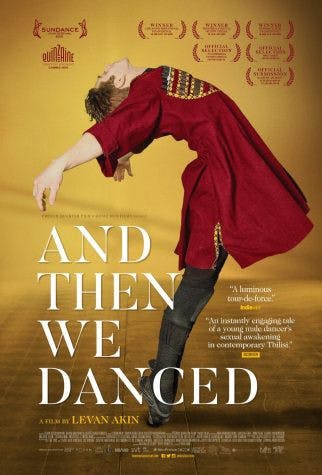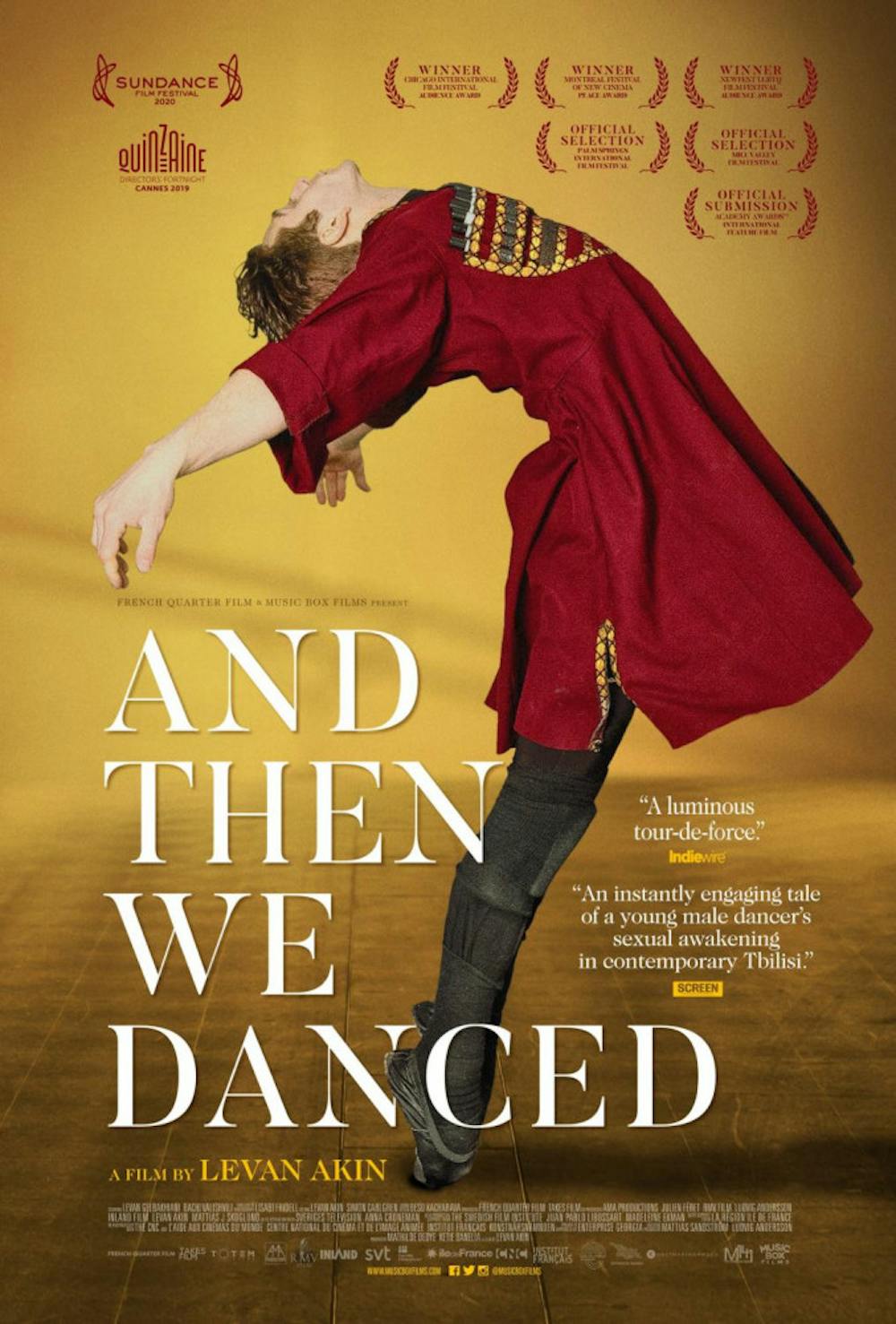In “And Then We Danced,” the Hirschfield Series’ latest politically-charged love story, Swedish director Levan Akin tells the story of a dancer navigating a career-defining audition and his struggles with his own sexuality.
Set in Tbilisi, Georgia, “And Then We Danced” interweaves poverty, art and love. Played by Levan Gelbakhiani, the main character Merab’s affection for Irakli (Bachi Valishvili), a new member of the dance troupe, serves as motivation for him to persist in his dance auditions despite heavy stigmatization of homosexuality in Georgia. From the start, Akin emphasizes heterosexual norms as dancers are heard gossiping about Zaza, an unseen character who is sent off to a monastery due to his homosexuality. Linking tradition and sexuality through the community of dance, the film highlights the internal, and often overlooked, discrimination in the industry.
Akin pushes for emotional honesty and aptly achieves it with poignant reflection. Through Gelbakhiani’s intimate performance, it’s easy to throw yourself into the turbulence of Merab’s world.
Merab’s love for dance is apparent as he jumps and spins, catching his breath every few seconds as the class watches on. The dance studio, old and worn with a patchy floor and mirrors taped together, reminds the audience of the characters’ impoverished state. Merab dances both for pleasure and out of financial and familial necessity.
Merab continues to be criticized for his dancing as the film progresses, with the dance director emphasizing traditional masculinity through the technical intensity and rigidity of Georgian dance. This added pressure magnifies the competition between Merab and Irakli as the latter is praised in the studio as an impressive and talented dancer. Merab’s self-confidence teeters as he simultaneously meanders through poverty amidst dinners of restaurant leftovers by candlelight after his serving shift. Dance acts as a way for the youth in the film to dream of living lives beyond their struggles.

Dance partners Mary (Ana Javakishvili) and Merab frequently discuss their aspirations on the steps of the studio. The film isn’t nearly as dreary as it could be in a commendable effort in raising heavy topics — from lusting after luxury cigarettes to lusting after Irakli, these details serve as lighthearted reminders of young adulthood. Moments of emotional and social tumult are even more pronounced in comparison. Gelbakhiani shows us the isolation and difficulties Merab faces in the studio as he grapples with his feelings of insecurity and love for Irakli through a personal, boyish portrayal.
Following reflection upon reflection, “And Then We Danced” presents a thought-provoking take on the bildungsroman. Akin holds back when portraying the dilemmas point-blank. The film puts a filter on fully confrontational drama as characters dance around the ostracism, and mellows down on its manifestations. While gossip circulates and characters are jeered — and are even thrust into fights — the film touches on the realities of discrimination in a way that keeps the dream of art and acceptance still intact. This decision works in the film’s advantage as Merab, learning to be himself, grows from the physical pain of dance and the pain of losing Irakli to reality as he decides to become engaged to a woman. The film in its final scenes questions the constraints gender norms impose, ultimately presenting us with a new question: when we are diminished to insignificance, where does our significance lie?
The answer is in the title. A precipitous dance comes full circle as Merab defies expectations of tradition: he frenetically spins, giving a dazzling performance on the dance floor and creating a dialogue of his own. Gesturing to the unknown, the film suspends us in the moment. We hang off of his breath; Merab pirouettes with confidence a final time, eyes gazing up.
Reel Critic: 'And Then We Danced'

COURTESY PHOTO/FRENCH QUARTER FILM
Comments



